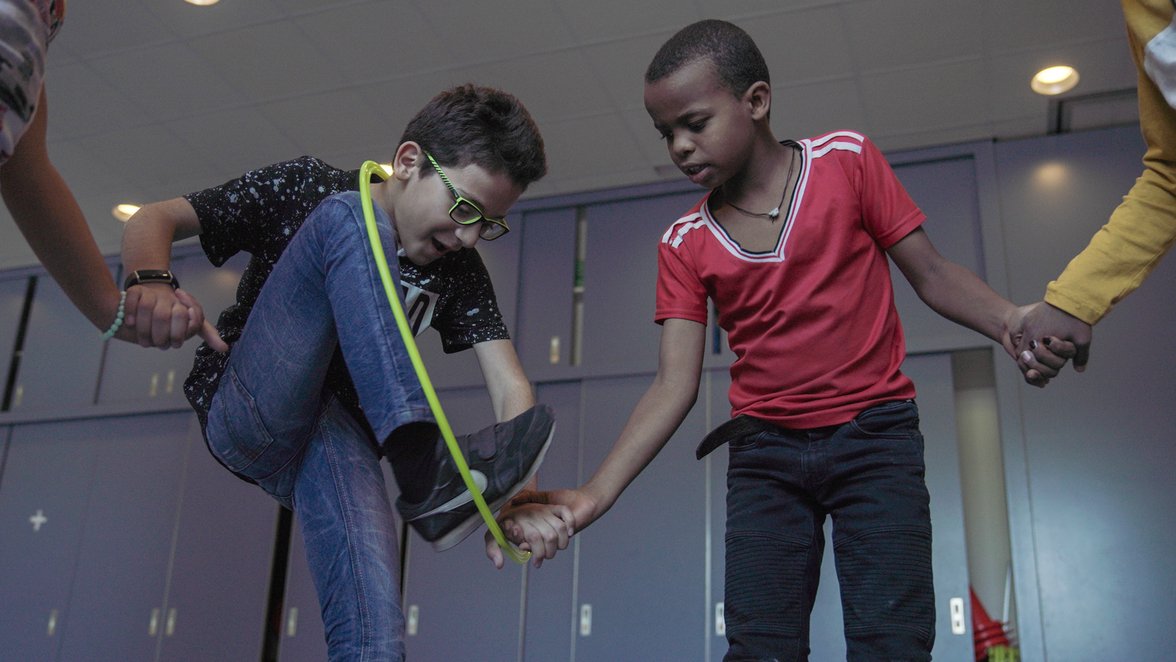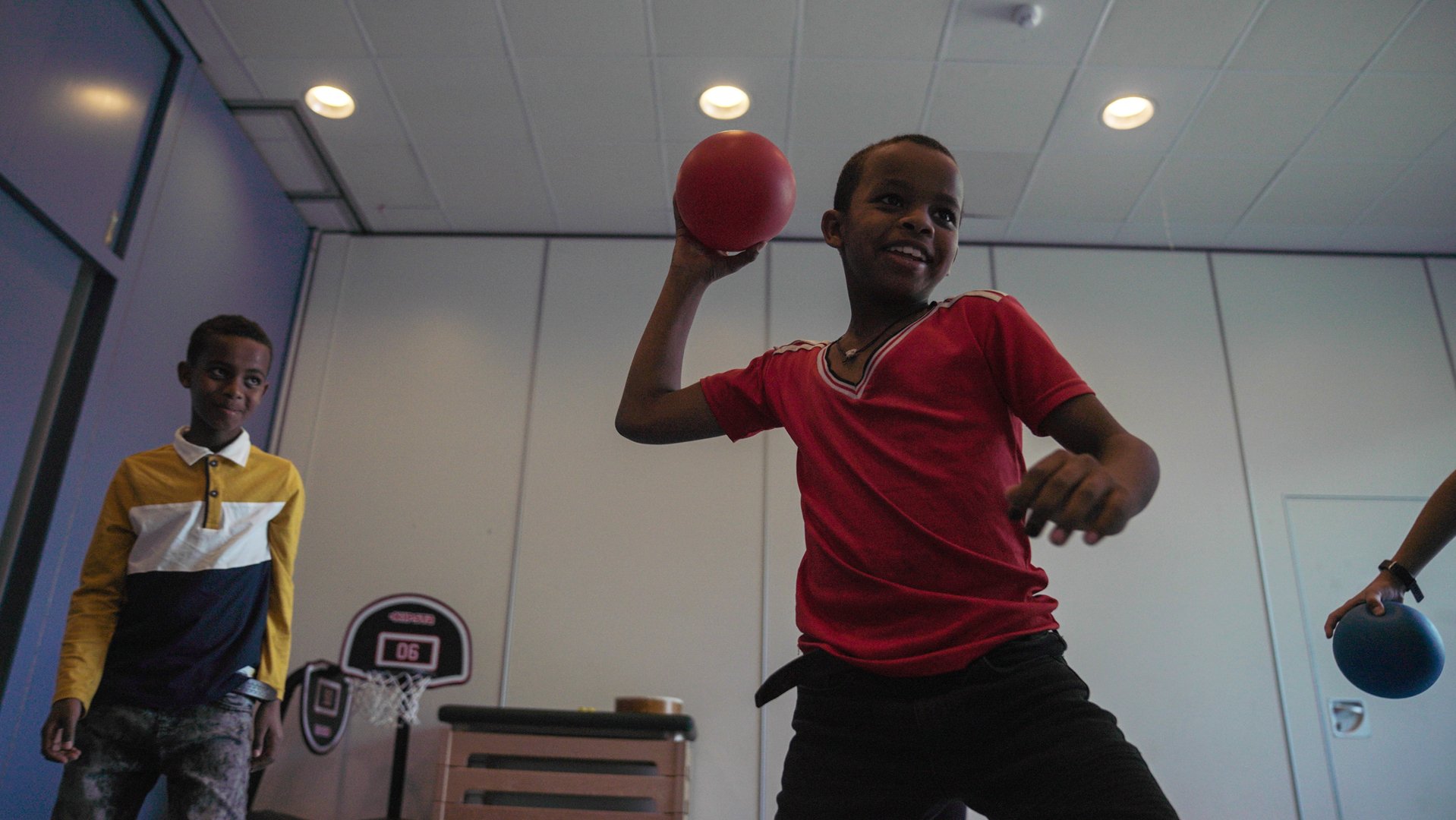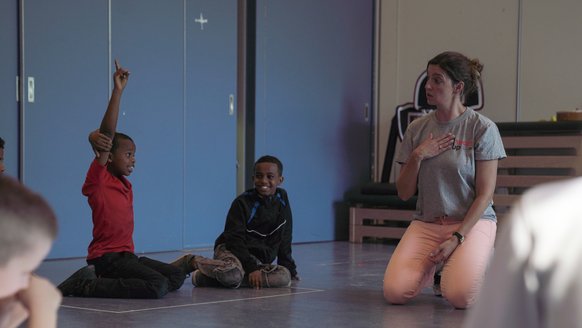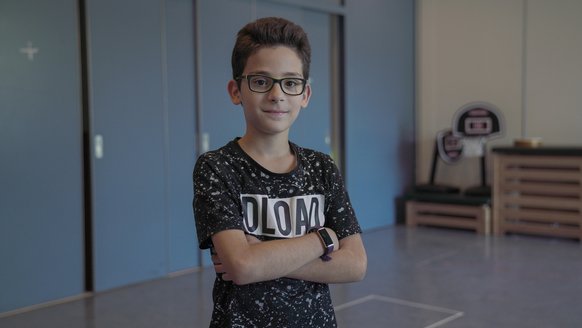Play and movement – key to better school performance for refugee children
Oct. 26, 2020

After a difficult and anxious time in their country of origin, refugee children in the Netherlands face new stress factors as a result of the asylum procedure, assimilation into a new culture and joining a class full of peers who speak a different language. Many of these children have experienced traumatic events. Helping them learn how to cope with their feelings is, according to the report, where TeamUp activities have proved successful.
Behaviour
“Often the children’s behaviour tells us what baggage they’re carrying with them,” explains teacher Cora Cijvat who works at a language school in Tilburg. "Sometimes, they are very angry, stressed, or they cannot express their emotions," she says, adding that it is important that attention is paid to this. "Space in your head is necessary to be able to learn and develop," adds Cora.
Language is secondary
Cora does TeamUp activities with the children in her class every week. “Language is secondary during a session of TeamUp,” she says. “Showing emotions, having fun and moving are what’s paramount.” According to Cora, children feel safe during the activities to really be themselves. "You can see children relax, flourish, and connect with the group."

Playing dodgeball during TeamUp at School children who grew up in war learn to work together in a team and deal with frustration in a healthy way.
Photo: Michael Jessurun
How does it work?
A typical TeamUp activity is ‘mirroring’, where pairs of children imitate each other's movements closely. In this way, children learn to ‘listen without talking’, and to adapt themselves to the other person, taking it in turns to lead. “And in dodgeball, they learn to work together in a team and deal with frustration in a healthy way. These are all skills that children can put to good use in everyday life,” she says.
Evaluation report
The evaluation involved interviewing 50 children and found that TeamUp helps, among other things, to establish social connections, gain more energy and act as a safe outlet for stress. In addition, the programme helps teachers to ‘wear a different hat’, shifting their role from that of purely teaching to being someone who takes part in the activities and has fun too.Take a look at the infographic for the most important findings at a glance.
TeamUp at School is a joint programme from War Child, Save the Children and UNICEF Netherlands in collaboration with CED Group

